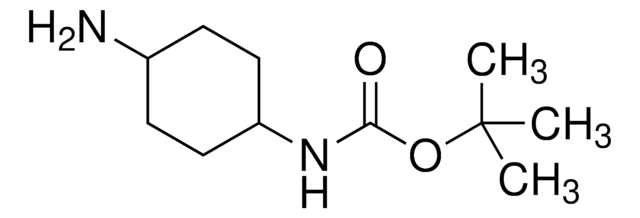45720
Eserine salicylate salt
≥97.0% (N)
Sinónimos:
Physostigmine salicylate salt
About This Item
Productos recomendados
origen biológico
synthetic
Ensayo
≥97.0% (N)
Formulario
powder
actividad óptica
[α]20/D −77±2°, c = 1% in ethanol
mp
181-183 °C
cadena SMILES
OC(=O)c1ccccc1O.CNC(=O)Oc2ccc3N(C)[C@H]4N(C)CC[C@@]4(C)c3c2
InChI
1S/C15H21N3O2.C7H6O3/c1-15-7-8-17(3)13(15)18(4)12-6-5-10(9-11(12)15)20-14(19)16-2;8-6-4-2-1-3-5(6)7(9)10/h5-6,9,13H,7-8H2,1-4H3,(H,16,19);1-4,8H,(H,9,10)/t13-,15+;/m1./s1
Clave InChI
HZOTZTANVBDFOF-PBCQUBLHSA-N
¿Está buscando productos similares? Visita Guía de comparación de productos
Acciones bioquímicas o fisiológicas
Palabra de señalización
Danger
Frases de peligro
Consejos de prudencia
Clasificaciones de peligro
Acute Tox. 2 Inhalation - Acute Tox. 2 Oral
Código de clase de almacenamiento
6.1A - Combustible acute toxic Cat. 1 and 2 / very toxic hazardous materials
Clase de riesgo para el agua (WGK)
WGK 3
Punto de inflamabilidad (°F)
Not applicable
Punto de inflamabilidad (°C)
Not applicable
Equipo de protección personal
Eyeshields, Faceshields, Gloves, type P3 (EN 143) respirator cartridges
Elija entre una de las versiones más recientes:
¿Ya tiene este producto?
Encuentre la documentación para los productos que ha comprado recientemente en la Biblioteca de documentos.
Nuestro equipo de científicos tiene experiencia en todas las áreas de investigación: Ciencias de la vida, Ciencia de los materiales, Síntesis química, Cromatografía, Analítica y muchas otras.
Póngase en contacto con el Servicio técnico






![Trimethylolpropane tris[poly(propylene glycol), amine terminated] ether average Mn 440](/deepweb/assets/sigmaaldrich/product/structures/186/658/1b1d510a-705a-4bfd-b90a-9dec80d64467/640/1b1d510a-705a-4bfd-b90a-9dec80d64467.png)

